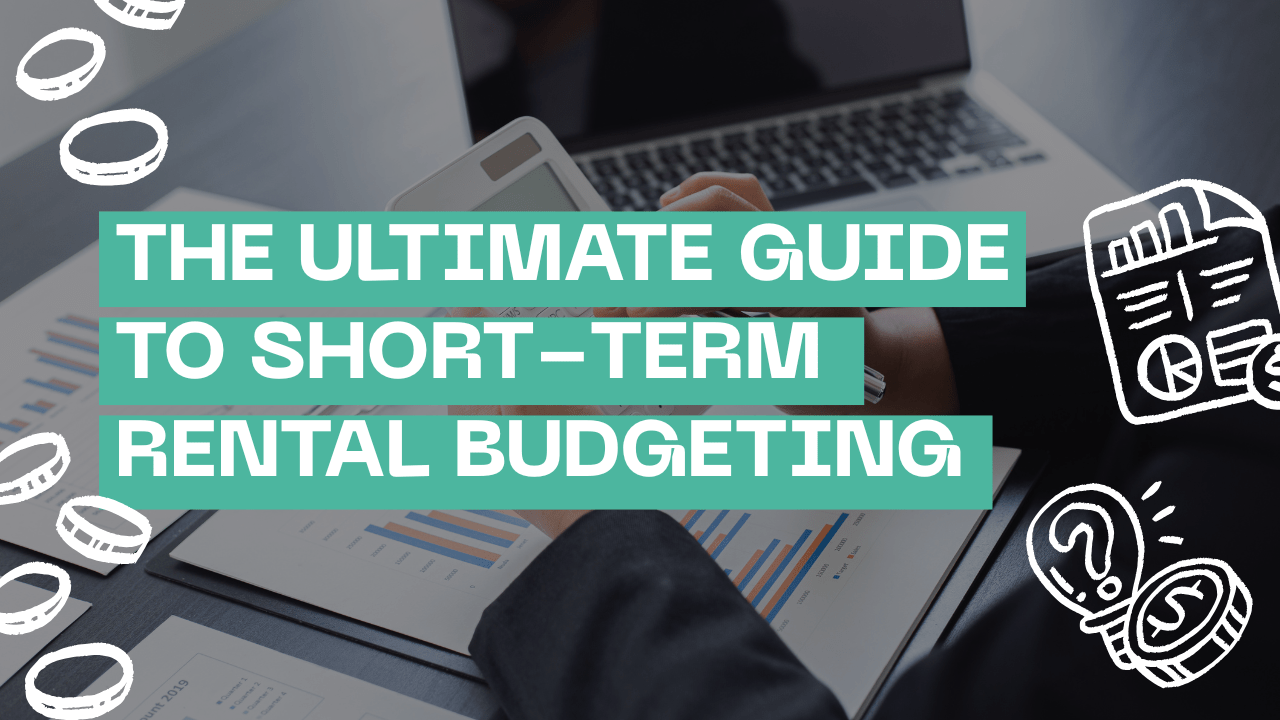
Short-term rental investments are growing in popularity to meet the demand of vacationers and visitors who want to stay in a private and spacious home rather than a hotel room. If you’re renting out a short-term property, you’re likely enjoying high per-night rates and enviable annual cash flow.
Unlike long-term rentals, short-term rentals come with a unique set of variable expenses and income streams that make budgeting both more complex and more critical. Having a solid budgeting strategy helps you maximize profit, endure slow seasons, and avoid unpleasant financial surprises.
Here’s our guide to short-term rental budgeting, based on our experience helping owners rent out their properties.
Know Your Fixed and Variable Costs
Start by identifying your fixed costs, which remain relatively constant month-to-month. These typically include:
-
- Mortgage payments
- Property taxes
- Insurance premiums
- HOA dues (if applicable).
Next, outline your variable expenses, which can fluctuate depending on occupancy, season, or guest behavior. These include:
-
- Utilities (water, gas, electricity, internet)
- Cleaning services
- Restocking supplies (toiletries, coffee, etc.)
- Maintenance
- Landscaping
- Unexpected repairs
Be sure to also account for platform fees from sites like Airbnb or Vrbo, which can take a percentage of each booking.
Factor in Seasonality and Occupancy Rates
One of the biggest budgeting mistakes short-term rental owners make is assuming consistent income year-round. In reality, bookings depend on the season, local events, and economic trends. Estimate your average occupancy rate for each month and adjust your revenue projections accordingly.
For instance, if your high season brings 90% occupancy but your off-season dips to 30%, you’ll need to save during the busy months to cover slower periods. Having a year-round cash flow forecast can help you plan for leaner months without dipping into personal savings or going into debt.
Plan for Wear and Tear
Short-term rentals see a high volume of foot traffic and turnover, which leads to faster wear and tear on furniture, appliances, linens, and decor. Build a reserve fund for replacements and updates so your property continues to look appealing and well-maintained. Many of the owners we work with set aside 5 to 10 percent of their monthly rental income for future capital expenses.
It’s also worth noting that guests often have high expectations, which can sometimes result in frivolous maintenance requests. By having a proper budget, you can more easily handle these unexpected issues as they arise.
Don’t Forget Marketing and Management Costs
Property management companies like ours can be instrumental in keeping your guests satisfied and your property booked. As a Super Host with Airbnb and with Premier status on VRBO, we know what it takes to provide a great guest experience and maximize your rental’s potential. Remember to budget for service fees, which are often around 10 to 30 percent of your gross rental income. If you manage the property yourself, consider your time as a cost, and factor in the tools you’ll need: channel managers, dynamic pricing software, photography, and advertising. These tools can help you optimize bookings but should be planned for in your monthly expenses.
Keep Detailed Records and Track Performance
 Use a budgeting spreadsheet or accounting software to track income and expenses on a monthly basis. This gives you clear visibility into your property’s financial health and helps with tax preparation.
Use a budgeting spreadsheet or accounting software to track income and expenses on a monthly basis. This gives you clear visibility into your property’s financial health and helps with tax preparation.
Budgeting for a short-term rental requires organization. By proactively planning for both predictable and surprise expenses, adjusting for seasonal income, and keeping detailed records, you position yourself for long-term success in a competitive and dynamic rental market.
Let us help. Contact us at Trend Property & Management. We specialize in Fort Worth property management, with comprehensive services available across the surrounding counties of Tarrant, Parker, Johnson, Hood, and Denton.




 Jason Zimmerman
Jason Zimmerman Jessica Schirmeister
Jessica Schirmeister